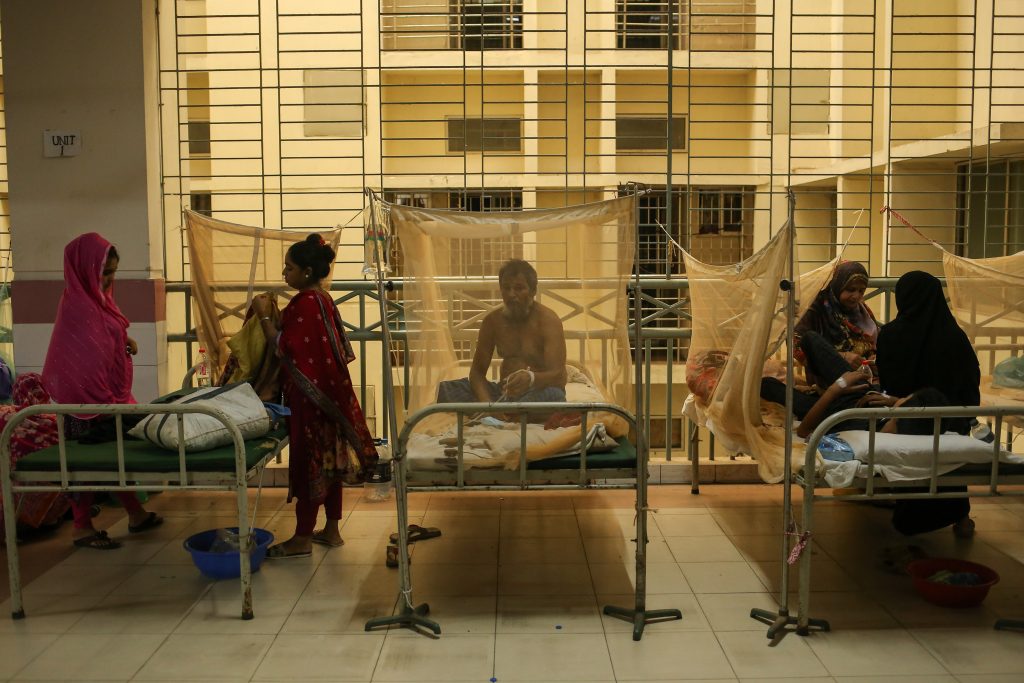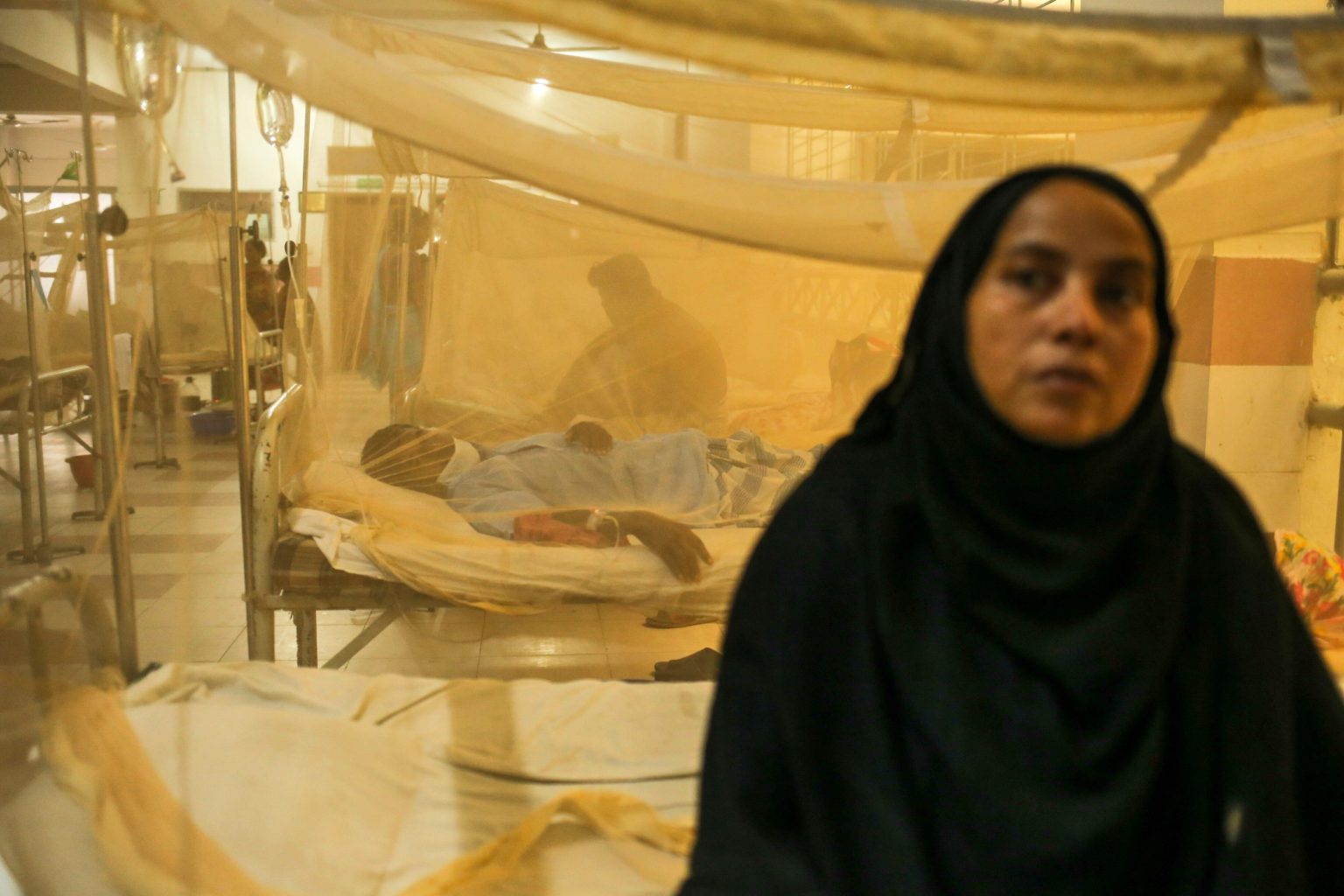Alongside the rising number of Covid-19 cases, Bangladesh is currently witnessing a concerning surge in mosquito-borne diseases like dengue and chikungunya. The outbreak is spreading rapidly across several districts, including the capital, Dhaka, and has already resulted in multiple deaths from both dengue and Covid-19.
As educational institutions, offices, and courts are set to reopen on Sunday after the Eid holidays, the Directorate General of Health Services (DGHS) has issued guidelines urging strict adherence to health safety measures. Warnings regarding a fresh Covid-19 wave have also been circulated. However, Covid-19 testing at the upazila (sub-district) level has yet to begin under government initiatives.
Investigations in several healthcare complexes reveal that people are now more inclined to seek Covid-19 tests at the onset of symptoms such as cough and cold—especially after reports of rising infections from a new variant in India.
Yet hospitals and health centers across the country are struggling with shortages of test kits, vaccines, essential medicines, platelet kits, healthcare staff, and adequate facilities—particularly for dengue treatment. While many private hospitals continue to provide diagnostic and treatment services for dengue, public hospitals are overwhelmed.
The monsoon season typically brings an increase in dengue cases in Bangladesh, but the simultaneous spread of Covid-19 this year is raising serious concerns.
According to DGHS data, dengue infections have sharply increased this month. In May, there were 1,773 confirmed cases. However, in just the first 14 days of June, 1,230 cases have already been recorded. This month has also seen the highest dengue-related death toll so far, with five fatalities reported in a single day (Friday). In comparison, January saw 10 dengue deaths in total.

Chikungunya cases are also on the rise due to mosquito bites. Most patients are being treated at home following doctors’ advice, according to several hospitals and diagnostic centers including Dhaka Medical College Hospital, Shaheed Suhrawardy Medical College Hospital, Dhaka Central Hospital, Popular Diagnostic Centre, and Labaid.
SM Kamal Uddin Hayder, convener of the Inter-Education Board Exam Controller Committee and Exam Controller of the Dhaka Education Board, expressed concern over the dual threat of Covid-19 and dengue. He noted that many parents have reached out to express their worries.
Despite the situation, the Higher Secondary Certificate (HSC) examinations are scheduled to begin nationwide on June 26. Barisal Education Board Chairman Yunus Ali Siddique stated that the current rate of infection does not yet warrant postponing the exams. He added that wearing masks and using hand sanitizers will be mandatory for students, and seating arrangements will maintain physical distancing.
Meanwhile, no new deaths from Covid-19 were reported in the past 24 hours, while seven new cases have been confirmed, according to a regular bulletin issued by DGHS on Saturday.
During this period, 139 samples were collected and tested from various parts of the country. Among them, seven individuals tested positive for the virus. Meanwhile, five patients recovered from the illness, bringing the total number of recoveries in the country to 2,019,401.
Previously, one death was reported on Thursday, followed by two more on Friday, raising the total Covid-19 death toll in Bangladesh to 29,502. The overall number of confirmed cases in the country now stands at 2,051,807.
Bangladesh detected its first Covid-19 cases on March 8, 2020, with the first death reported on March 18 of the same year. The highest number of daily deaths—264—was recorded on two separate days, August 5 and 10, in 2021.


